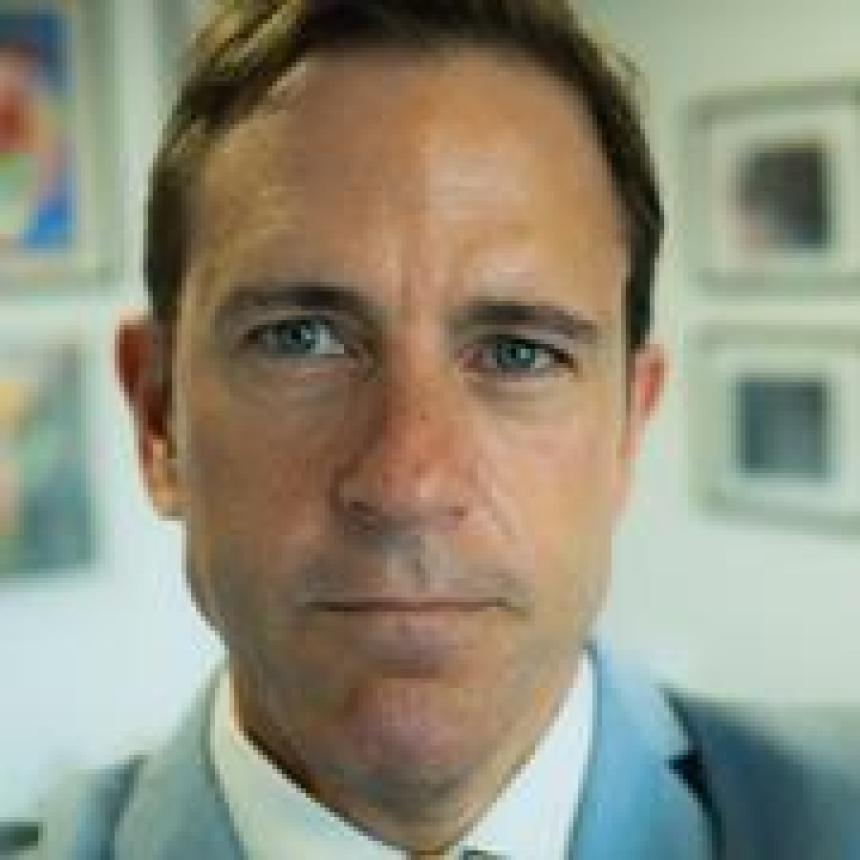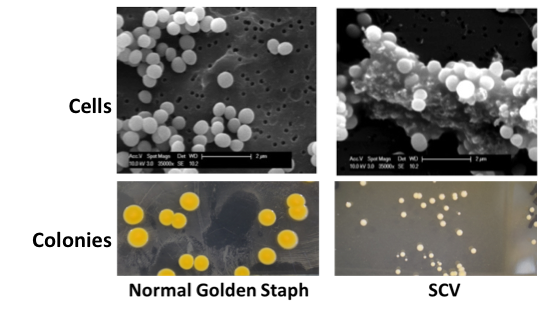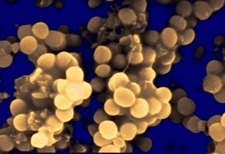
Dr Stephen Kidd
Senior Lecturer
School of Biological Sciences
College of Sciences
Eligible to supervise Masters and PhD - email supervisor to discuss availability.
He moved to the University of Adelaide in 2008. His research group works on pathogenic bacteria. Current research is focussed on determining the molecular, genetic and transcriptional systems bacteria use to survive under prolonged periods of time with host-generated and medical stressors. Of particular interest is that for bacteria within an anatomical niche and importantly, over time, they create a diversity of cell types which enable survival. Identifying and characterising these adaptive cell types is important for understanding chronic and relapsing infectious diseases. His research investigates various pathogenic bacteria, in particular "Golden Staph". Within different anatomical niches there are numerous stresses the bacteria encounter and these include nutrient stress, changes in pH as well as direct chemical stress (such as oxidative stress) and the stress generated by antibiotics.
Overview
Our focus is to understand chronic and relapsing bacterial infections. We use various traditional microbiological techniques together with modern –omics approaches to determine the molecular systems that bacteria use to survive for prolonged periods of time under physical and chemical stresses. What is particularly interesting is that when infecting an anatomical niche, over a long time period, bacteria generate a diversity of cell types – it is these that enable survival against various antimicrobial processes.

By creating steady-state growth conditions we can enable the broader bacterial cell types which may have decreased fitness; to be studied – these include biofilm cells, persister cells and Small Colony Variants (SCVs). Identifying and characterising these adaptive cell types is important for understanding chronic and relapsing infectious diseases. Our research investigates various pathogenic bacteria, commensal bacteria that do switch to a virulent type and the combinations of bacteria.
RESEARCH PROJECTS: 
Many bacterial species have a capacity to respond to antimicrobial processes and assaults by the production of any number of virulence factors (above; blue circles). Pathology that is due to bacterial infection is generally the result of the interaction between these factors and the host cells. There is also a very clear understanding that within a clonal population of bacterial cells there are a variety of cell types (phenotypic variants). This may include the Small Colony Variants (SCVs – above; pale green circles), persister cells (above; dark green circles) and biofilm cells (above; gold circles).
These cell types are quasi-dormant, they have limited expression of virulence factors and immune mediators and they have low metabolic activity and growth. There are inherently tolerant of antibiotics. They are very hard to clear from the site of infection and are the basis for chronic and relapsing infections.
Compounded with this is that often within the body there are pre-existing bacteria or other co-infecting pathogens. We have projects that study different bacterial species and their transition into an alternative lifestyle: such as Staphylococcus aureus, Moraxella catarrhalis, Haemophilus influenzae and Streptococcus pneumoninae.
We have used continuous culture techniques to follow the development of phenotypically diverse populations (as a mono-culture or within a community of bacterial species) and then to map the transcriptional, molecular and genetic events that define these changes in the population. This includes the transition to a biofilm and the dynamics of a multi-species biofilm. We are also interested in following the molecular genetics of the bacteria and the bacterial population as they adapt to their environment in laboratory scale evolution expierments.
 CURRENT STUDENT PROJECTS:
CURRENT STUDENT PROJECTS:
We have Honours Projects each year within the theme of the molecular microbiology of pathogenic bacteria during their response to stresses. The projects involve traditional microbiology, molecular biology and modern –omics techniques as well as cell biology (using human tissue culture techniques). Projects are designed around both fundamental, training and achievable tasks alongside extended goals. These projects are designed within the context of the current, developing research within the laboratory. The work is essential research, with a focus to combine with the bigger projects and therefore for scientific publications. The exact nature of the work can be discussed and actual projects described in the month or so leading into the start of the Honours year.
Masters and PhD projects:
We welcome Masters or PhD students and can happily discuss the nature of such projects.
| Date | Position | Institution name |
|---|---|---|
| 2024 - 2024 | Acting Associate Dean (International) Faculty of SET (South Asia, Middle East & Africa) | University of Adelaide |
| 2020 - ongoing | Associate Head (International), School of Biological Sciences | University of Adelaide |
| 2018 - ongoing | Deputy Director (Australian Centre for Antimicrobial Resistance Ecology, ACARE) | University of Adelaide, Adelaide |
| 2017 - 2018 | Associate Dean (Student Life) | University of Adelaide, Adelaide |
| 2013 - ongoing | Senior Lecturer | University of Adelaide |
| 2008 - 2012 | Lecturer | University of Adelaide |
| Date | Type | Title | Institution Name | Country | Amount |
|---|---|---|---|---|---|
| 2012 | Award | Faculty of Science Early Career Teaching Award | University of Adelaide | Australia | - |
| 2009 | Fellowship | Fellow of the Australian Society for Microbiology | ASM | Australia | - |
| Date | Institution name | Country | Title |
|---|---|---|---|
| 2008 | University of Queensland, Brisbane | Australia | Graduate Certificate (Higher Education) |
| 1995 - 1998 | University of Queensland | Australia | PhD |
| Year | Citation |
|---|---|
| 2016 | Kyd, J., Krishnamurthy, A., & Kidd, S. P. (2016). Interactions and Mechanisms of Respiratory Tract Biofilms Involving Streptococcus Pneumoniae and Nontypeable Haemophilus Influenzae. In D. Dhanasekaran, & N. Thajuddin (Eds.), Microbial Biofilms - Importance and Applications (pp. 299-327). InTech. DOI |
| 2011 | Kidd, S. (2011). Novel Regulation in Response to Host-generated Stresses: The MerR Family of Regulators in Pathogenic Bacteria. In Stephen Kidd (Ed.), Stress Response in Pathogenic Bacteria (1 ed., pp. 93-114). United Kingdom: CABI Publishing. Scopus2 |
| Year | Citation |
|---|---|
| 2018 | Indren, M., Birzer, C., Medwell, P., & Kidd, S. (2018). Biochar Addition in High-Solids Anaerobic Digestion of Poultry Litter. In 2018 IEEE Global Humanitarian Technology Conference (GHTC) (pp. 8 pages). San Jose, USA: IEEE. DOI Scopus3 WoS1 |
| Year | Citation |
|---|---|
| 2023 | Keneally, C., Southgate, M., Chilton, D., Kidd, S., & Brookes, J. (2023). Microbial ecology & methane production in a hypersaline coastal lagoon. Poster session presented at the meeting of Freshwater Sciences 2023. Brisbane. |
| 2019 | Kidd, S. (2019). ASM2019 report. Poster session presented at the meeting of Microbiology Australia. CSIRO PUBLISHING. DOI |
| Year | Citation |
|---|---|
| 2025 | Keneally, C. (2025). Salinity-Dependent Microbial Ecology and Biogeochemical Dynamics in a Degraded Hypersaline Coastal Lagoon. (PhD Thesis, The University of Adelaide). |
| Year | Citation |
|---|---|
| - | Keneally, C., Gaget, V., Kidd, S., & Brookes, J. (n.d.). <b>Publication Raw Data - </b><b>Sample preservation solution increases nucleic acid yield and environmental RNA quality in sediments across an estuarine salinity gradient</b>. DOI |
| Year | Citation |
|---|---|
| 2023 | Zelmer, A., Yang, D., Gunn, N., Solomon, B., Nelson, R., Kidd, S., . . . Atkins, G. (2023). Antibiotics at Clinical Concentrations Show Limited Effectivity Against Acute and Chronic Intracellular<i>S. aureus</i>Infections in Osteocytes. DOI |
I am Program Co-ordinator for the Bachelor of Science (Biotechnology).
I am coordinator for Science Internships
I teach into several other course.
I lead a Global Mobility Study tour to South Korea - Seoul-changing Biotechnology.
| Date | Role | Research Topic | Program | Degree Type | Student Load | Student Name |
|---|---|---|---|---|---|---|
| 2024 | Principal Supervisor | Phenotypic Diversity of Staphylococcus aureus During Colonisation. | Doctor of Philosophy | Doctorate | Full Time | Ms Chloe Burford-Gorst |
| 2024 | Principal Supervisor | Phenotypic Diversity of Staphylococcus aureus During Colonisation. | Doctor of Philosophy | Doctorate | Full Time | Ms Chloe Burford-Gorst |
| 2023 | Principal Supervisor | Bacterial lifestyles that provide tolerance of antimicrobials | Doctor of Philosophy | Doctorate | Full Time | Mrs Hasindu Gayanitha Dassanayake |
| 2023 | Principal Supervisor | Bacterial lifestyles that provide tolerance of antimicrobials | Doctor of Philosophy | Doctorate | Full Time | Mrs Hasindu Gayanitha Dassanayake |
| Date | Role | Research Topic | Program | Degree Type | Student Load | Student Name |
|---|---|---|---|---|---|---|
| 2022 - 2025 | Co-Supervisor | Investigating Novel Antibiotic and Herbicide Targets to Circumvent Resistance | Doctor of Philosophy | Doctorate | Part Time | Mr Daniel Adam Hawkins |
| 2020 - 2024 | Co-Supervisor | Anaerobic Digestion of Chicken Litter in a Leach Bed System With Biochar Application | Doctor of Philosophy | Doctorate | Part Time | Mr Ben Ashleigh Collins |
| 2020 - 2023 | Principal Supervisor | Investigating the Influence of Fungicide Usage and Vineyard Disease Management on the Grapevine Microbiome and Wine Quality | Doctor of Philosophy | Doctorate | Full Time | Mr Brady Leigh Welsh |
| 2020 - 2025 | Co-Supervisor | Salinity-Dependant Microbial Ecology and Biogeochemical Dynamics in a Degraded Hypersaline Coastal Lagoon | Doctor of Philosophy | Doctorate | Full Time | Mr Christopher Clement Keneally |
| 2019 - 2023 | Co-Supervisor | Antimicrobial resistance in Escherichia coli and enterococci isolated from beef cattle | Doctor of Philosophy | Doctorate | Full Time | Dr Yohannes Equar Messele |
| 2019 - 2024 | Co-Supervisor | Disruption of Fusobacterium nucleatum biofilm using innovative anti-microbial compounds to prevent and treat periodontal disease | Master of Philosophy (Dentistry) | Master | Part Time | Ms Julia Kaburaki |
| 2018 - 2022 | Co-Supervisor | Pre-Clinical In Vitro and In Vivo Testing of Novel Antimicrobials for the Treatment of Bacterial Infections | Doctor of Philosophy | Doctorate | Full Time | Ms Hang Thi Nguyen |
| 2018 - 2023 | Co-Supervisor | Lanthanide-doped upconversion nanoparticles (UCNPs) for biomedical applications |
Doctor of Philosophy | Doctorate | Full Time | Mr Afshin Karami |
| 2018 - 2022 | Principal Supervisor | Persistent Staphylococcus aureus infection through the selection of alternative lifestyles | Doctor of Philosophy | Doctorate | Full Time | Mr James Lee |
| 2017 - 2020 | Co-Supervisor | The Use of Biochar in High-Solids Anaerobic Digestion | Doctor of Philosophy | Doctorate | Full Time | Mr Mathu Indren |
| 2017 - 2025 | Co-Supervisor | An Investigation into the Mechanisms of Persistence Utilised by Intra-Osteocytic Staphylococcus aureus | Doctor of Philosophy | Doctorate | Full Time | Mr Nicholas James Gunn |
| 2016 - 2020 | Co-Supervisor | Investigation of the IcsA-mediated Shigella flexneri hyper-adherence | Doctor of Philosophy | Doctorate | Full Time | Mr Jilong Qin |
| 2015 - 2015 | Co-Supervisor | Characterisation of the Shigella flexneri O Antigen Polymerase Wzy | Doctor of Philosophy | Doctorate | Full Time | Ms Pratiti Nath |
| 2013 - 2015 | Co-Supervisor | Polarity and Secretion of Shigella flexneri IcsA: A Classical Autotransporter | Doctor of Philosophy | Doctorate | Full Time | Mr Matthew Thomas Doyle |
| 2012 - 2016 | Principal Supervisor | Haemophilus influenzae survival and biofilm formation in a complex physical, chemical and multispecies environment. | Doctor of Philosophy | Doctorate | Full Time | Alexandra Tikhomirova |
| 2011 - 2015 | Principal Supervisor | STAPHYLOCOCCUS AUREUS: STRESS RESPONSE AND ITS ROLES IN PATHOGENESIS | Doctor of Philosophy | Doctorate | Full Time | Miss Minh Giao Long Bui |
| 2010 - 2016 | Co-Supervisor | Proteomic Analysis of Enterococcus faecalis Cell Membrane Proteins under Alkaline Stress Conditions | Doctor of Philosophy | Doctorate | Part Time | APrf Peter Cathro |
| 2009 - 2014 | Principal Supervisor | Coupling Stress Responses and Growth Pathways in Haemophilus influenzae | Doctor of Philosophy | Doctorate | Full Time | Mr Changde Donald Jiang |
| Date | Role | Committee | Institution | Country |
|---|---|---|---|---|
| 2015 - ongoing | Chair | School of Biological Sciences Teaching and Learning Committee | University of Adelaide | Australia |
| Date | Role | Membership | Country |
|---|---|---|---|
| 2015 - ongoing | Member | Australian Society for Antimicrobials | Australia |
| Date | Role | Editorial Board Name | Institution | Country |
|---|---|---|---|---|
| 2014 - ongoing | Consulting Editor | Frontiers in cellular and infection microbiology | - | - |




